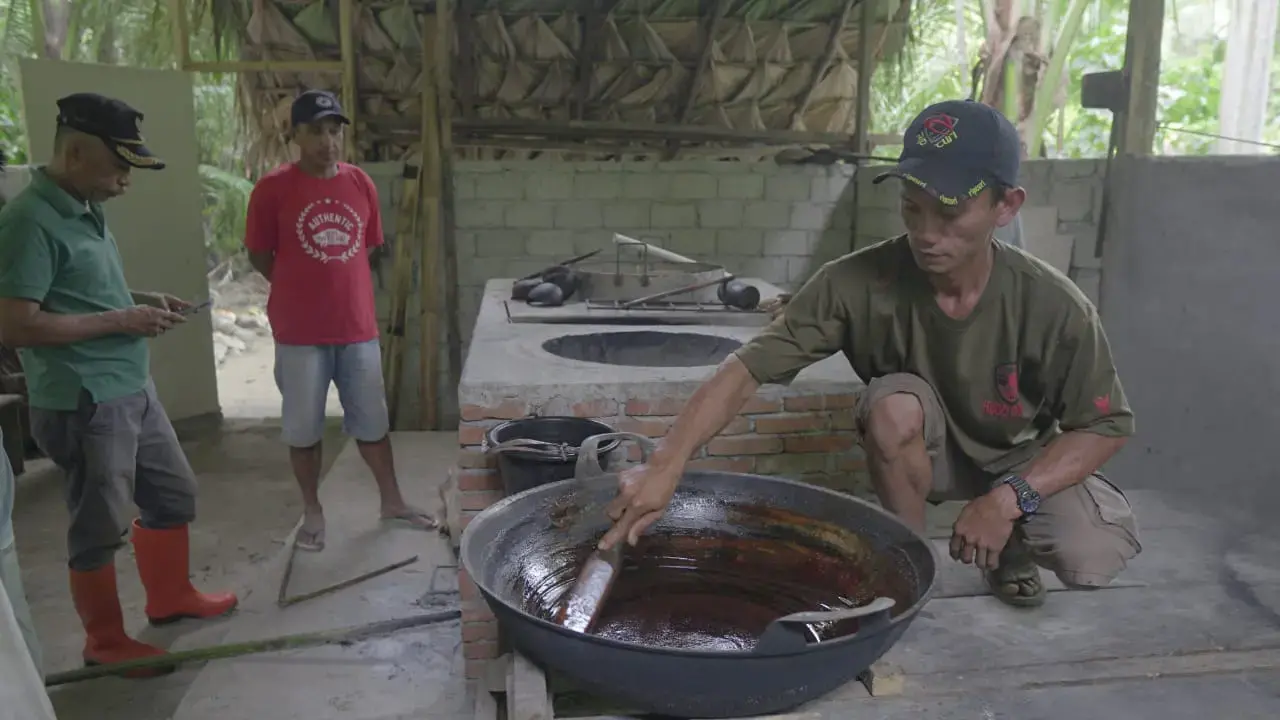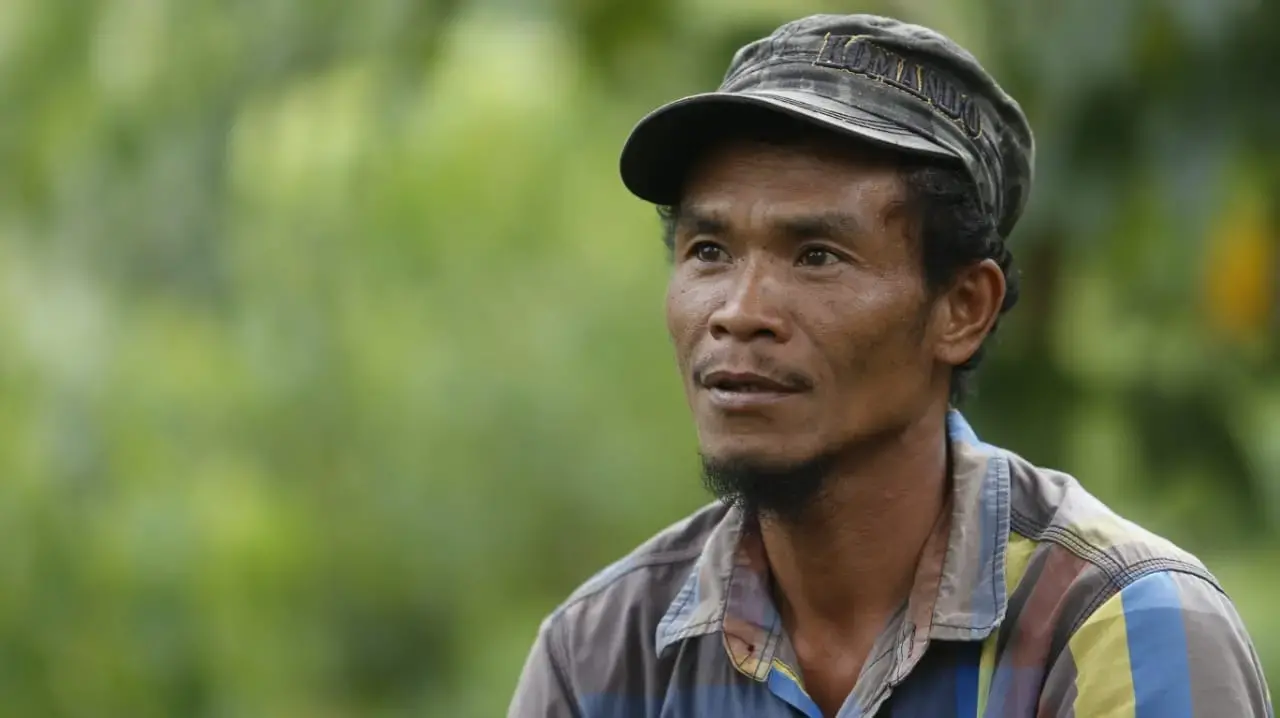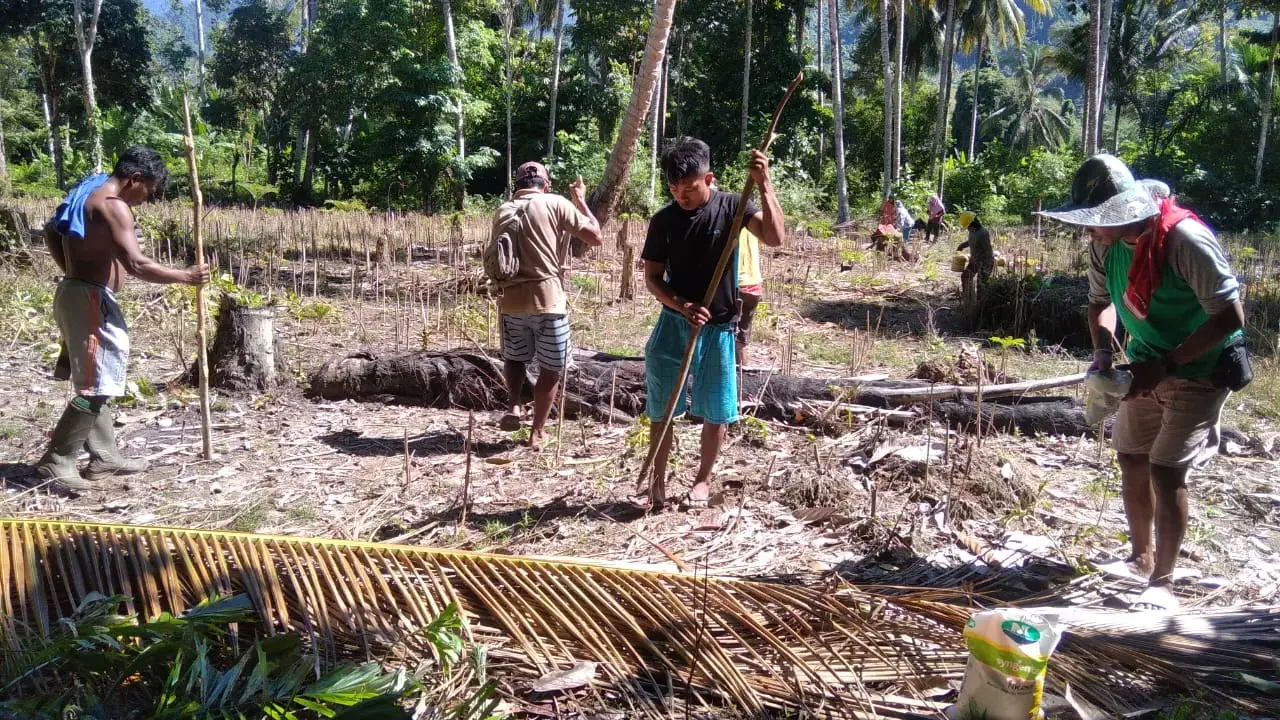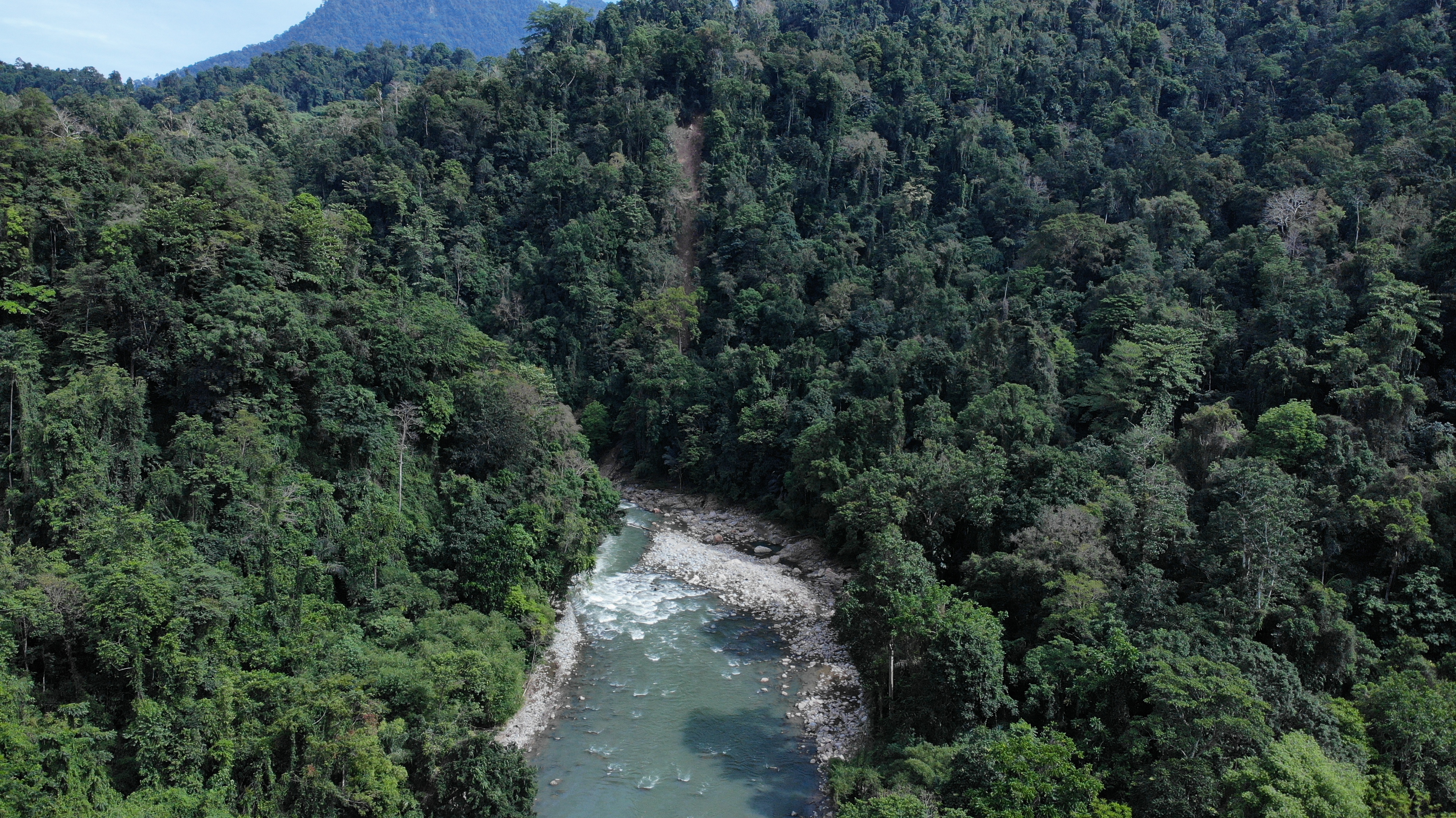This story excerpt was translated from bahasa Indonesia. To read the original story in full, visit Lipu Naratif. You may also view the original story on the Rainforest Journalism Fund website here. Our website is available in English, Spanish, bahasa Indonesia, French, and Portuguese.
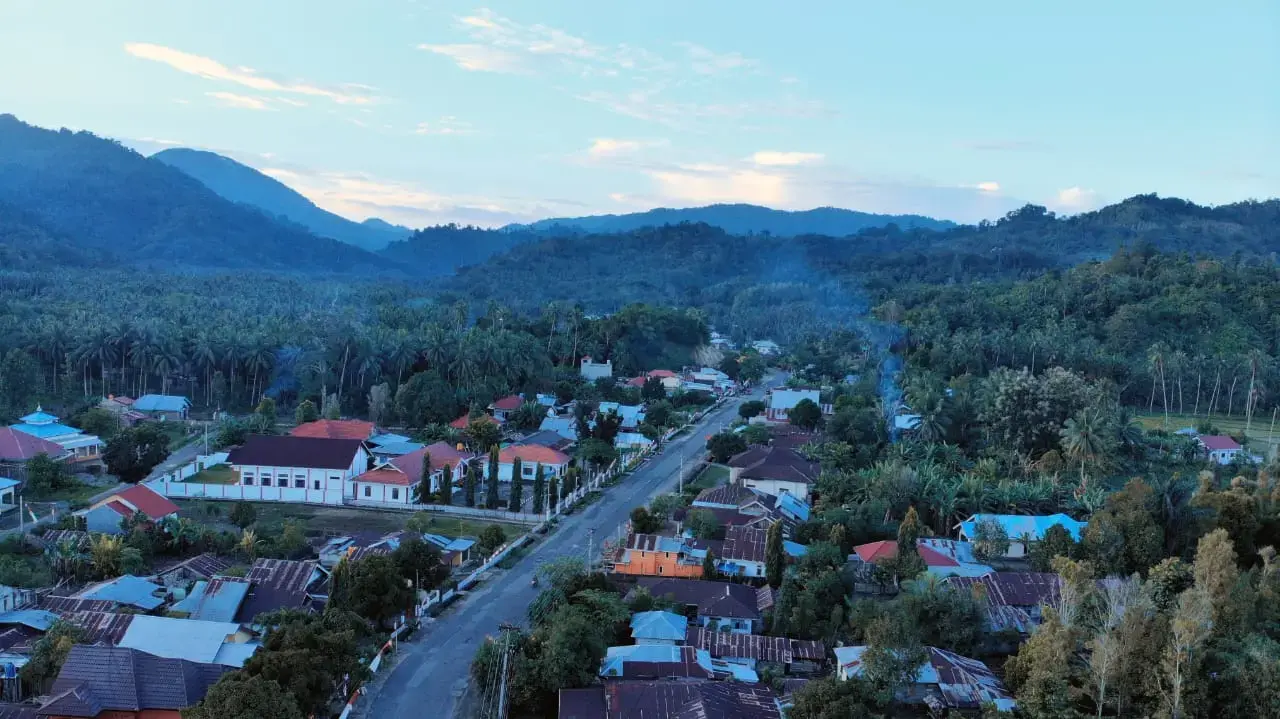
Once opponents, they now volunteer to collaborate in restoring the ecosystem in the forests of Bogani Nani Wartabone National Park (TNBNW).
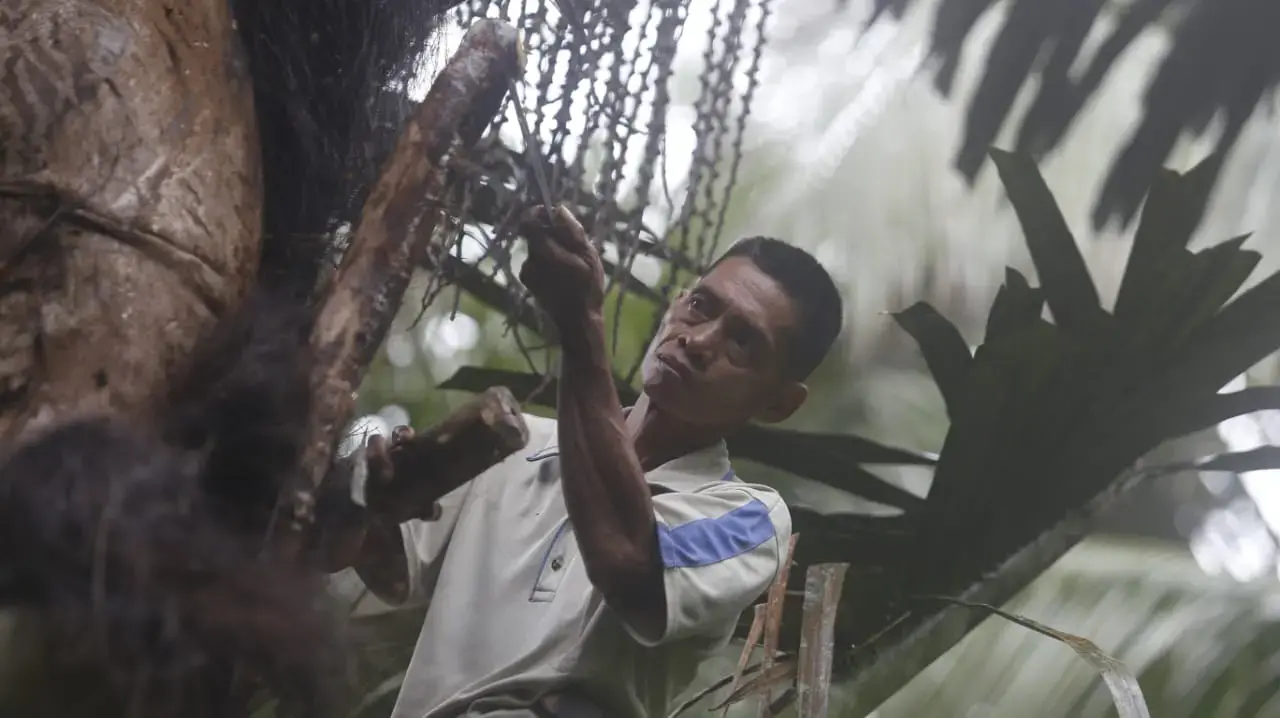
Basri Lamasese walks stealthily under the towering trees, at first glance like a reptile monitoring a target. He spotted a hole with scattered soil, a fresh excavation. For someone who used to be a maleo (Macrochepalon maleo) egg hunter, he knew by heart where the maleo nesting holes were.
Basri quickly lifted a large egg. He carried it to the hatching shelter: A small hut with holes similar to those dug by maleo birds. He was lucky that day, finding the egg faster than natural predators.
"Every day I have to compete with the monitor lizards. If I lose, these eggs will be eaten by the monitor lizards," Basri said.
As a nonprofit journalism organization, we depend on your support to fund journalism covering underreported issues around the world. Donate any amount today to become a Pulitzer Center Champion and receive exclusive benefits!
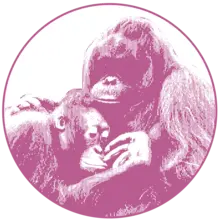
Due to the massive human poaching of maleo eggs and birds, people like Basri inevitably have to save them from natural predators. This is done to maintain the balance of Sulawesi's endemic bird population. He himself is a former maleo egg hunter.
Basri no longer remembers how many eggs he stole, which he failed to hatch. Hundreds or maybe even thousands. He has been taking maleo eggs since he was a teenager. His house and garden are very close to the maleo nesting site in Molibagu Village, South Bolaang Mongondow, North Sulawesi Province.
